Eartha Mae Kitt
Eartha Mae Kitt
“I don’t think I ever felt I belonged anywhere,” she once said, in a 2000 interview, “because I was . . . conditioned from the time when I was a child that I didn’t belong. So I sort of followed my own path.”
She never found out who her father was, and she only discovered the date of her birth at the age of 71. According to her daughter, when she found out, she cried.
She believed her birth date was January 26, 1926. Her actual birth date was January 17, 1927.
She was born on a cotton plantation in a small town in South Carolina. According to various biographies online, she was born of rape, her father a white man whose identity she would never find out, hidden from her supposedly because of his status. She and her mother, ["a black Cherokee sharecropper" according to the New York Times], were so poor that the young girl would remember going house to house, looking for shelter and something to eat. She even had to stay in a crawl space under the house with the cats.
Her mother, Annie Mae Keith (as spelled in some articles, "Keitt" in another article), would eventually abandon her.
According to writer Latria Graham, "For years [the young girl] was abused by the family that kept her, and she believed her prayers went unanswered in the way she needed them to be. When she wasn’t picking cotton under an oppressive sun, she was slopping hogs and hauling wood.
"'We were not treated like people,' she said angrily in an interview about her upbringing. 'We were treated like [. . .] three-quarters of a person.'
"In her autobiography [she] writes that when the adults were away she was often dressed in a croaker sack, tied to a tree, and beaten by the household’s children until her flesh gave way and her blood mixed with the red clay and sand composite now underneath my feet."
"By her early teenage years she was working in a factory and sleeping in subways and on the roofs of unlocked buildings. (She would later become an advocate, through Unicef, on behalf of homeless children.)," according to the Times.
At the age of 16, she left America and found herself in Turkey. There, somehow, she landed a spot with an American dance troupe.
Drawing on the hardship of her early life, she would become a star.
Eartha Mae Kitt became "an international star who gave new meaning to the word versatile. She distinguished herself in film, theater, cabaret, music and on television. Miss Kitt was one of only a handful of performers to be nominated for a Tony (three times), the Grammy (twice), and Emmy Award (twice)," according to the Eartha Kitt web page.
"In her prime, Eartha Kitt became an icon. She danced with the Katherine Dunham Company before becoming a cabaret singer and actress. She visited one hundred and eight countries, performing songs in more than ten languages. Orson Welles reportedly called her 'the most exciting woman alive,' and by 1960 she had a star on the Hollywood Walk of Fame. From the start, she defied the archetypes often ascribed to black women of her time: jezebel, maid, cook, slave, or tragic mulatto," according to Graham.
She became famous for her rendition of "Santa Baby" and her turn as Catwoman in the 1967 Batman television series.
She became involved in the Civil Rights Movement and the Women's International League for Peace and Freedom. She also established the Kittsville Youth Foundation, a chartered and non-profit organization for underprivileged youths in the Watts area of Los Angeles and was also involved with a group of youths in the area of Anacostia in Washington, D.C., who called themselves "Rebels with a Cause".
But, in 1968, she would be blacklisted for making a critical comment about U.S. involvement in Vietnam at a White House luncheon hosted by the First Lady.
Although, "the move cemented her position as an activist," it also endangered her career," according to Graham. "Kitt was a black woman stating her opinion to a white woman in arguably the most important building in the country."
She would have to leave the country again.
Kitt would say, "Because I am black, I had to be taught a lesson, and put back into my place as a singing, dancing, mindless automaton who saw no evil, did no evil, and most important, publicly spoke no evil."
Eventually, as the opinion on the war shifted, Kitt would return to America in a triumphant turn in the Broadway spectacle "Timbuktu!". She received standing ovations whenever she performed the show-stopping theatrical anthem "I'm Still Here". She would be welcomed to the White House again in 1978, invited by President Jimmy Carter.
Kitt continued speaking out on women's issues and became an outspoken advocate for the rights of LGBT people.
She said in her book, “Thursday’s Child”. “I think I am an example of what can happen to someone who tries. I am a Negress out of the cotton fields. I had enough ambition within myself to try to create a better world — in spite of the depressions and the suppressions, and I had my share. I hope that I can encourage others to try, and that you don’t have to crush anybody to get there, you don’t have to push through too harshly.”
In one of her songs, she sings, "For today I'm still here, I am strong. I don't care what the people saying, I will still carry on this way. Let them jeer, let them rant and rave . . . I'm still here."
[Photo from Eartha Kitt Productions]

.jpeg)
_(cropped).jpg)

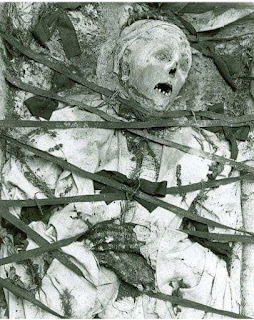
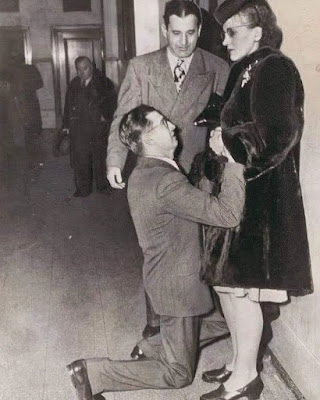
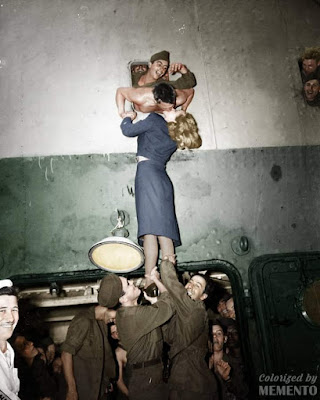


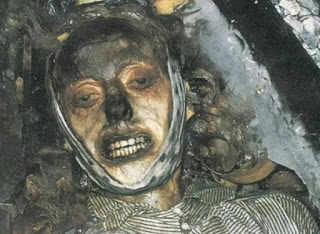
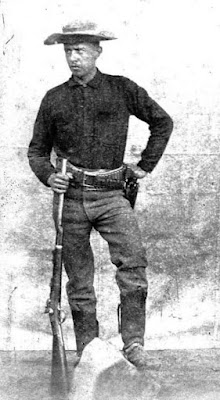


Comments
Post a Comment